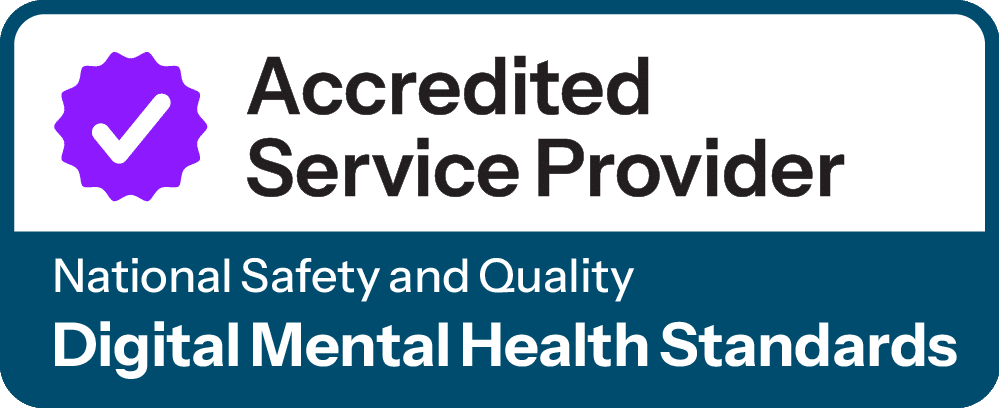
Support Networks: your secret weapon in changing your relationship with alcohol
Consider this: you've made the decision to change your relationship with alcohol. You might have decided to try cutting down or to stop drinking entirely. You're motivated, you're ready to make a change, but as the days (and nights) pass, you find yourself facing unexpected challenges. Maybe something happens at work or at home. Maybe you’re just feeling bored, down, stressed or anxious. Maybe cravings kick in. This is when your support network swoops in to help save the day. They're your cheerleaders, your confidants, and your sounding board all rolled into one. You find you can let go of the breath you’ve been holding. You don’t have to do it alone.
So, who makes up your support network? Let’s start with friends and family. These are the people who know you best, who have seen you on your fabulous days and your less than fabulous days. These are the people who want nothing but the best for you. When you need help, they're there to lend a listening ear, offer words of encouragement, or simply distract you with a fun activity. They're also great at helping you navigate social situations where alcohol might be present, making sure you feel supported and empowered to stick to your goals.
Then, there are support groups. Whether it's our online community Daybreak, or an in-person (and virtual) group like Smart Recovery, these groups provide a safe space for people who are on similar paths to connect, share their experiences, and offer each other support and advice. Being part of a support group can make you feel less alone in your journey and you can gain valuable insights and strategies from others who have been where you are. If you're interested in joining a support group, do some research to find one that feels like a good fit for you.
Yet, these priceless resources can’t support you if they don’t know you need it.
Asking for help is important
Some people who’ve decided to change their relationship with alcohol may feel sensitive about their drinking, embarrassed, or isolated. Perhaps they think, "I can manage. I don't need anyone else's help." And that's fine. But having a support network doesn't mean you're not strong enough or incapable of making this change alone. In fact, it's quite the opposite. It takes strength and courage to reach out and ask for help when you need it. Plus, having someone in your corner can make the journey a whole lot more achievable and rewarding.
Prepare to ask
Just like changing your relationship with alcohol, when asking for help from family and friends, preparation is key. Here are some steps you can take to get ready:
• List your goals for changing your relationship with alcohol so you can describe the help you need.
• Make a list of the people in your life that you want to ask for help and how they can support you. For example, you may want to ask someone to go with you to social events, to act as your accountability partner, or to check in on you regularly.
• Practice what you want to say to potential supporters so you can feel confident to ask.
How to Ask for Help from Your Family and Friends
Once you’re ready to ask for help from your family and friends, here are some tips on how to approach it:
• Pick a good time and place to talk to them. Choose a calm, private setting where you can have an honest conversation, and have each other’s full attention.
• Be clear about your situation and your goals.
• Ask for their support and understanding. Tell them what kind of help you need from them and how they can make a difference in your journey.
• Reassure them that you are committed to your goals and that you’re willing to seek professional help if you need it. Share your plan of action with them, and the resources you’ve found. Ask them to join you on your journey and to support you along the way.
How to Maintain Your Support System
Asking for help is the first step on the path. Maintaining your support system is the next. Plan to keep your cheer squad updated on your progress and challenges. Here are some tips:
• Communicate with them regularly. Keep them informed of your achievements and setbacks, and how you’re going. Share your feelings and thoughts and ask for their feedback.
• Involve them in your activities. They could join in your new hobbies and interests if it works for you both. Celebrate your wins, milestones and successes with them.
• Respect their boundaries and needs. Don’t expect them to be available or supportive 24/7 or to agree with everything you say or do. Give them space and time when they need it.
• Appreciate and thank them for their help. Show them that you value their support and care. Acknowledge their efforts and support, and reciprocate their help when you can.
Seeking support from friends, family, or support groups can be a game-changer when it comes to changing your relationship with alcohol. They're the ones who will celebrate your victories with you, pick you up when you stumble, and remind you of why you started this journey in the first place. Know that you’re not alone in your journey – the Daybreak community is always there for you too and they will lift you up every step of the way.
So, don't be afraid to lean on your supports when you need to, and remember, you've got this.
All the best from the Hello Sunday Morning Team











Why don’t you guys ever mention AA? That is brilliant.